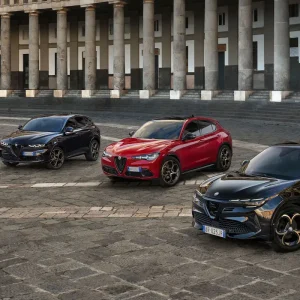
The UK Government’s ZEV mandate is at risk of accidentally harming the country’s EV transition, MPs have been told.
Addressing a House of Commons Transport Committee session on the health of the EV market following the delay in the ban on new petrol and diesel cars to 2035, BVRLA chief executive Gerry Keaney said the mandate needed to be applied with some flexibility.
To meet the mandate, manufacturers must sell a specified, increasing proportion of zero-emission vehicles each year, or potentially incur penalties.
Keaney said: “The ZEV mandate is in more danger of creating negative unintended consequences than of acting as a positive driver into the marketplace.
“The ZEV mandate was launched at almost exactly the time when the government sent a significant signal to consumers and the marketplace on electric vehicle adoption moving from 2030 to 2035.
“On the one hand they put the ZEV mandate in place, forcing manufacturers to achieve penetration levels of a certain percentage, and at the same time they sent a very negative signal to consumers. That is clearly one of the key factors that has affected retail consumer confidence in the marketplace for new electric vehicles.”
Keaney said that based on feedback from the market and from manufacturers, the two changes together were not currently delivering what was intended.
He said: “With my membership in the rental sector we see the significant economic contribution made by the major rental companies: there is very little demand for rental customers to take an electric vehicle with all the issues around charging, infrastructure, confidence and whatever else.
“Clearly, our rental members are under a lot of pressure, in discussions with manufacturers, to take a share of electric vehicles alongside the petrol vehicles they want so that manufacturers can achieve their 22% penetration levels. That is pushing electric vehicles into a segment of the marketplace where there is no demand for them.
“That is negative overall and will certainly create a disorderly marketplace. The implications of the current ZEV mandate in isolation, operating as it currently does, are creating significant negative unintended consequences.”
Also addressing the committee, Society of Motor Manufacturers and Traders (SMMT) head of technology and innovation David Wong spoke of an imbalance that had been created between supply and demand.
He said: “The ZEV mandate is essentially a supply-side measure. It compels the supply of the vehicles, but there is nothing on the other side of the fence to compel consumers to purchase those vehicles.
“Pushing back the end- of-sale date from 2030 to 2035 doesn’t help because, on the supply side, manufacturers are obliged to bring a certain percentage of vehicles to the market, in increasing measure, every year until 2030; but on the demand side the message that is being sent to consumers, unfortunately, is that they have a five-year stay of execution, so to speak, and they can delay their purchase for another five years, all the way to 2035. That misalignment between the supply and demand sides does not help.”





